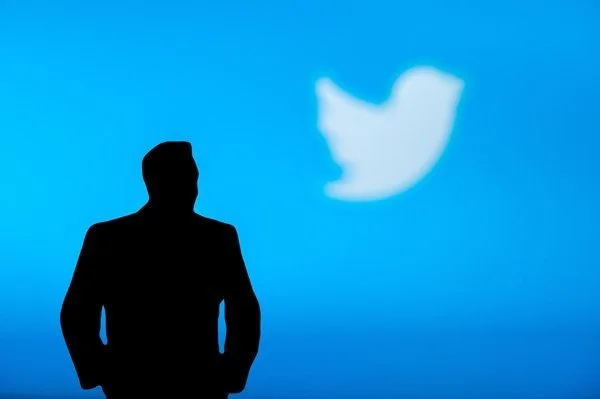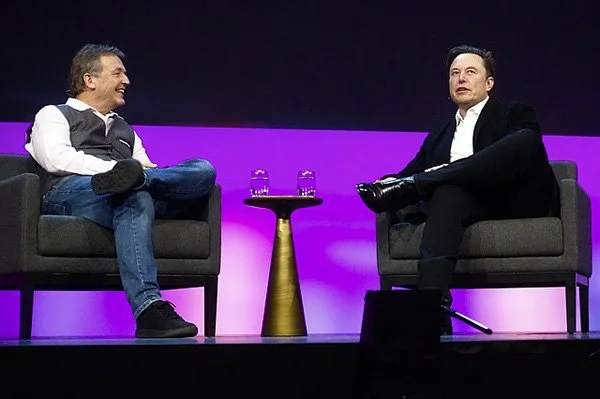Twitter Pill
Tweets may be free, but there’s no free speech in a billionaire’s business.
Read
After Elon Musk bought Twitter and fired most of its staff, the platform seems to be floundering, if not imploding. Traffic is flagging, major news outlets have abandoned their handles, hate speech is on the rise. And yet, Twitter remains one of the easiest ways to speak out in public. Media scholar Meredith Clark doesn’t know if Twitter will survive, but she does know it’s a repository for a remarkable history of antiracist activism. Hear how she is working to preserve that archive, and why.
Clark joined us for a live taping in Will and Siva’s University of Virginia classroom — our fourth such episode this season. They asked her what she is archiving, whether social media activism is largely performative and what free speech really means on a privately owned service. She tells them there is much joy overlooked in conversations on Twitter that her collaborators hope will live on. She says “permissible speech” is a better way to think about how social media companies regulate their own content. And she insists there is hope that trendy virtue-signaling on platforms like Twitter can translate into positive action in real life, so long as they don’t get in the way.
Plus, find out what Clark means by reparative journalism that might address the legacy of white supremacy in American media.
Meet
Meredith Clark studies the intersection of race, media and power. She is an associate professor at Northeastern University’s School of Journalism and founding director of the Center for Communication, Media Innovation and Social Change. Prior to that appointment, she taught in the media studies department at the University of Virginia, served as a fellow at the Data & Society Research Institute, and worked in newspapers across the South. In 2015, The Root recognized Clark as one of the 100 most influential African Americans. Follow her on Twitter @meredithdclark.
Clark and two colleagues studied more than 40 million tweets and interviewed 40 Black Lives Matter activists about their use of Twitter to galvanize the movement, especially after the shooting of Michael Brown in Ferguson, Mo., in 2014. The evidence from this work suggests that users did help drive the debate on police reform.
Clark’s efforts to archive Black Twitter are just getting started, as part of a larger project called Archiving the Black Web. Collaborators are invited to create their own personal histories of Twitter posts and interactions that are meaningful to them.
She also wants to create a record of joyful moments — like D.J. Nice’s Club Quarantine — and hilarious commentary — like when black users had a field day with Yahoo Finance over an infamous headline typo, in 2017.
“If there’s any American institution that must pay reparations, it is journalism,” Clark has written, in an essay for NiemanLab. Since then, she says, her views have evolved somewhat: It’s not just about paying, but about making amends for systemic oppression in news coverage — in large part by widening its scope.
In her forthcoming book We Tried to Tell Y’all: Black Twitter and Black Digital Resistance, Clark foregrounds microblogging but also considers how marginalized people have long used new technologies in the service of political counternarratives. Case in point: Freedom’s Journal, the first black-owned newspaper in the United States, founded in 1827.
The historical approach is key to Clark’s work. In a critique of cancel culture rhetoric, she traces contemporary calls for holding the powerful accountable to the black vernacular tradition. The backlash against these efforts, she writes, amounts to a kind of moral panic.
Clark has also examined the role that white folks can play as allies in antiracist activism online. When she first asked Twitter uses to talk about their use of #BlackLivesMatter, to her surprise many of the early respondents were white.
In January 2021, she co-hosted a workshop at Data & Society called “Against Platform Determinism,” to discuss how people themselves shape the way they interact in the digital world.
Learn
An early account of “How Black People Use Twitter” in Slate got Clark thinking about where to focus her research as she tacked from journalism to scholarship. “I am a black person,” she recalls thinking. “Not sure that I use it in the same way it’s being described in this article.”
Black resistance on Twitter — particularly through the hashtag #OscarsSoWhite — pushed the Academy of Motion Picture Arts and Sciences to make structural and cultural changes. More than a third of invitees into the Academy in 2020 were members of underrepresented racial and ethnic groups.
The rapper R. Kelly faced the scorn of Black Twitter, too. And the community celebrated his sentencing for sexually abusing young fans for decades — a scandal that users of the platform fought to bring to light.
Since taking over Twitter, Musk has relaxed its rules on allowable content, all in the name of free speech. The New Republic reports on the return of many neo-Nazis to the platform.
The company’s workforce has been reduced from about 7,500 to 2,000, and the site has seen an increase in glitches, including the proliferation of imposter accounts. The relaunch of its premium subscription service — intended to fix problems and drum up falling revenue — faced a flurry of criticism.
Until 2019, the Associated Press Stylebook offered no guidance on using the term racist. That year, the AP updated much of its advice on covering race-related stories, doing away with the hyphenation of terms like Asian American and discouraging euphemisms like “racially charged.” If an incident is racist, the organization said, use racist.
Newsrooms have been trying to diversify their coverage and demographic makeup, with variable success, since the 1970s, motivated in part by the findings of the Kerner Commission — a document that also, incidentally, recommended broad reforms in American policing. Like police reform, reform in journalism is slow going. According to the Pew Research Center, more than half of the journalists it surveyed last year said their organizations weren’t doing enough, beyond “diversity training.”
Many colleges and universities have also tried step up their programs on diversity, equity and inclusion. At the same time, institutions of higher ed have experienced conservative blowback against even largely symbolic strategies. Read about Bert Ellis, a new board member here at UVa who is opposed to diversity programing.
In a 2021 op-ed for the Baltimore Sun, three scholars considered how DEI rhetoric at colleges and universities can end up reinforcing racist structures by privileging branding and rubrics over real change. “These hidden dangers share a common feature,” they write, “one that is both well-known and structurally entrenched: the outsized role that corporate management models now play in shaping our learning communities.”







